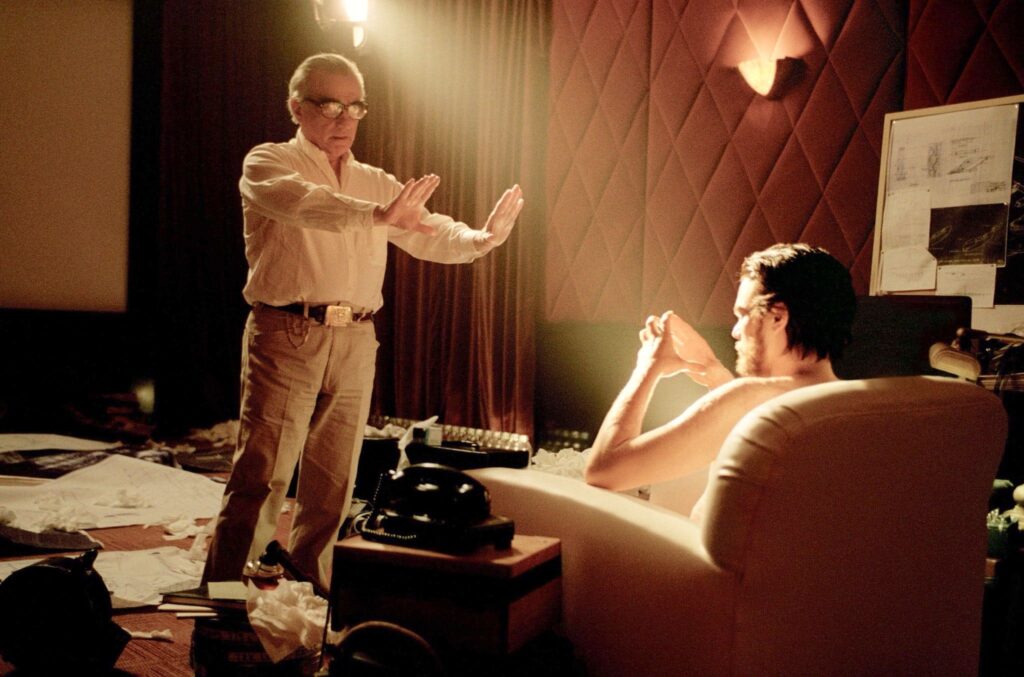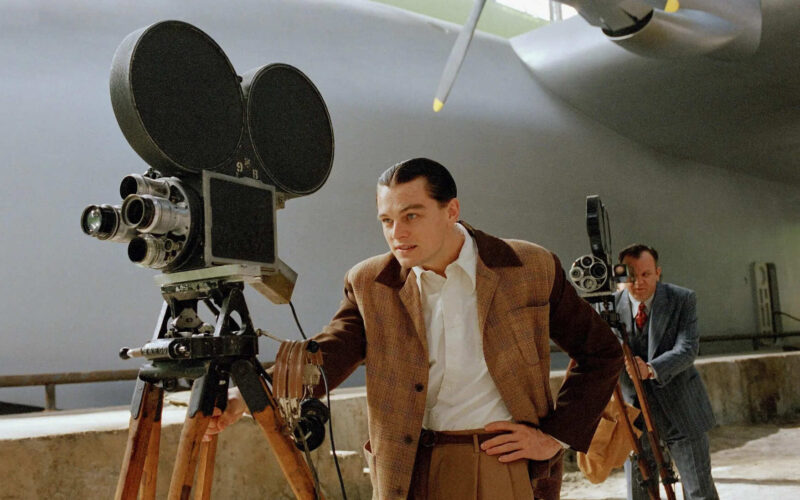At the heart of The Aviator lies the remarkable story of Howard Hughes, a billionaire industrialist, filmmaker, and aviation pioneer whose ambition knew no bounds. Portrayed with magnetic intensity by Leonardo DiCaprio, Hughes is depicted as a man driven by genius but haunted by his own demons, including crippling obsessive-compulsive disorder (OCD). The film chronicles Hughes’s rise to fame during the 1920s and 1930s, his groundbreaking achievements in aviation, and his turbulent personal life, culminating in his descent into isolation.
Hughes’s story is one of ambition, innovation, and excess—a perfect subject for Scorsese, who has long been fascinated by characters driven to the edge by their obsessions.
Martin Scorsese brings his signature style to The Aviator, combining meticulous period detail with breathtaking cinematography. The film captures the glamour and decadence of Hollywood’s Golden Age, as well as the daring spirit of early aviation. Scorsese’s collaboration with cinematographer Robert Richardson resulted in a visual feast, with scenes bathed in rich, Technicolor-inspired hues that evoke the era’s film stock.
Leonardo DiCaprio’s performance as Hughes earned him widespread acclaim and his first Golden Globe win for Best Actor. DiCaprio captures both the charisma and vulnerability of Hughes, delivering a nuanced portrayal that anchors the film. His meticulous preparation for the role, including studying Hughes’s mannerisms and struggles with OCD, shines through in every scene.

The film’s stellar supporting cast adds depth and dimension to the story. Cate Blanchett delivers an Oscar-winning performance as Katharine Hepburn, Hughes’s fiery and independent lover. Blanchett’s transformation into the iconic actress, complete with Hepburn’s distinctive voice and mannerisms, is a standout in the film. Other notable performances include Kate Beckinsale as Ava Gardner, Alan Alda as Senator Brewster, and Alec Baldwin as Juan Trippe, Hughes’s rival in the aviation industry.
The Aviator is not just a biopic; it’s a study of human ambition and the cost of greatness. The film explores Hughes’s relentless drive to push the boundaries of what was possible in both aviation and filmmaking, but it also unflinchingly examines the toll of his mental health struggles. From the thrilling recreation of Hughes’s record-breaking flight in the H-1 Racer to the heartbreaking scenes of his obsessive rituals and isolation, Scorsese crafts a narrative that is as inspiring as it is tragic.
Upon its release, The Aviator was both a critical and commercial success. It received 11 Academy Award nominations, including Best Picture and Best Director, and won five, including Best Supporting Actress for Blanchett and Best Cinematography. Its success cemented the collaboration between Scorsese and DiCaprio, which has since become one of the most celebrated director-actor partnerships in modern cinema.
Two decades after its release, The Aviator continues to resonate as a masterpiece of biographical storytelling. It is a film that not only celebrates the achievements of a visionary but also grapples with the complexities of human frailty. Scorsese’s ability to blend grandeur with intimacy makes The Aviator a film that soars above the typical biopic.
As we look back on The Aviator in 2024, it remains a reminder of the power of cinema to capture the triumphs and tragedies of extraordinary lives. For Howard Hughes, and for audiences, the sky was never the limit.









